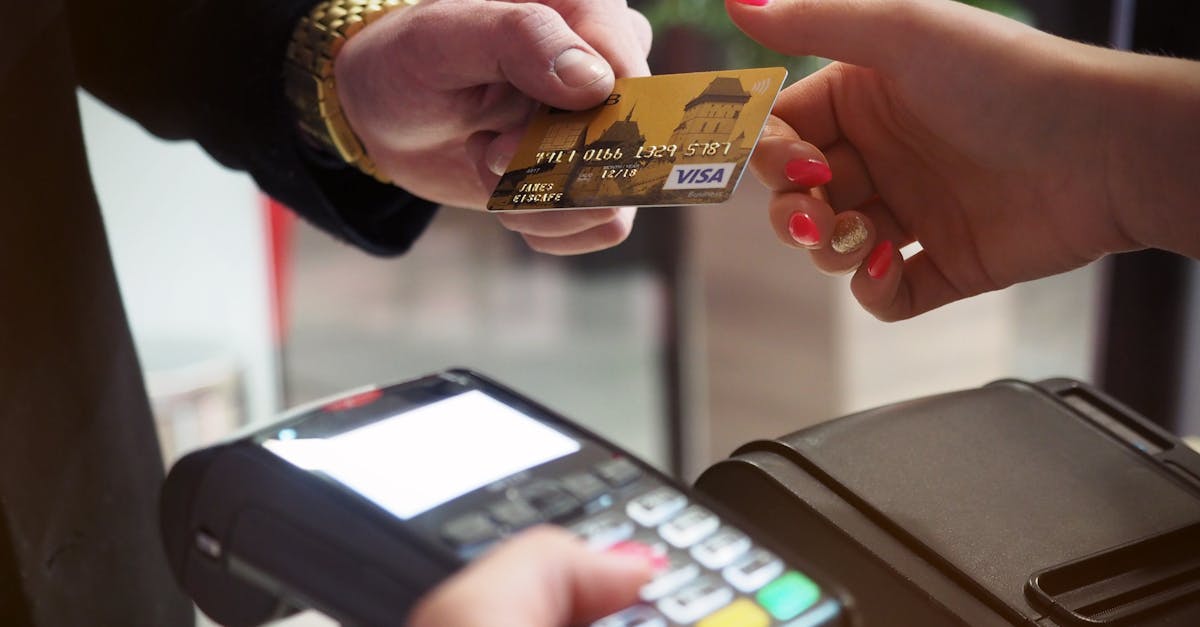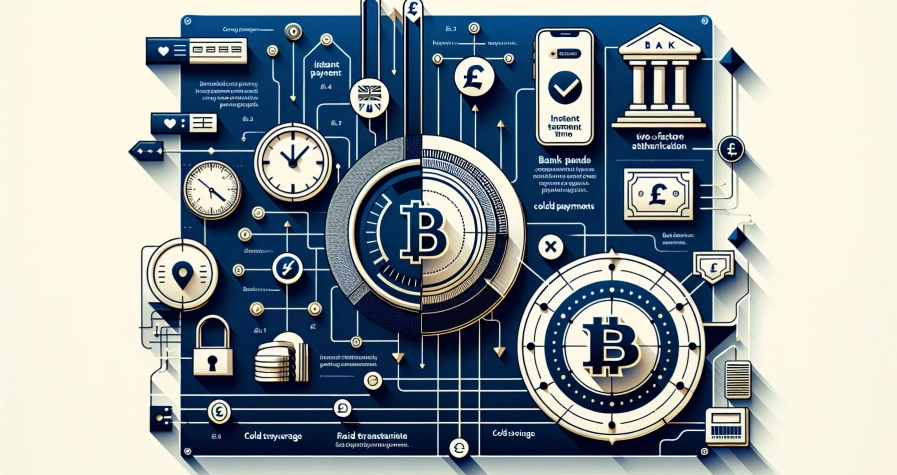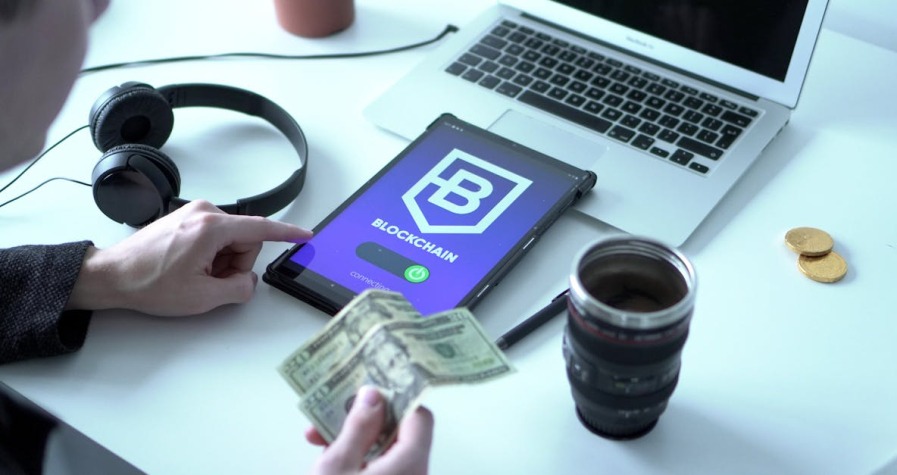Buying Bitcoin with your credit card has become one of the most convenient ways to enter the cryptocurrency market. Whether you’re a complete beginner or looking to add more Bitcoin to your portfolio, using a credit card offers instant purchasing power and eliminates the waiting periods associated with bank transfers.
The process itself is straightforward once you understand the key steps and choose the right platform. You’ll need to select a reputable exchange that accepts credit card payments, complete identity verification, and navigate the purchasing process safely. However, there are important considerations like fees, security measures, and potential credit card restrictions that you should understand before making your first purchase.
Most major cryptocurrency exchanges now support credit card transactions, making it easier than ever to buy Bitcoin within minutes. With proper preparation and the right knowledge, you can confidently purchase Bitcoin using your credit card whilst avoiding common pitfalls that catch many newcomers off guard.
Understanding Bitcoin and Credit Card Purchases
Bitcoin operates as a decentralised digital currency that exists independently of traditional banking systems. You purchase Bitcoin through cryptocurrency exchanges that convert your fiat currency into digital assets stored in blockchain networks.
Credit card purchases offer immediate Bitcoin acquisition without waiting for bank transfers or other slower payment methods. Major credit card providers like Visa and Mastercard facilitate these transactions through partnered cryptocurrency exchanges.
How Bitcoin Credit Card Transactions Work
Your credit card company processes Bitcoin purchases as regular transactions with merchant category codes specific to cryptocurrency exchanges. The exchange receives your payment instantly and credits Bitcoin to your account within minutes.
Most exchanges implement three-step verification processes:
- Card authentication through your bank’s security protocols
- Exchange identity verification using government-issued documents
- Transaction confirmation via email or SMS
Credit Card vs Other Payment Methods
| Payment Method | Processing Time | Fees | Purchase Limits |
|---|---|---|---|
| Credit Card | Instant | 3-5% | £500-£10,000 daily |
| Bank Transfer | 1-5 days | 0.1-1% | £50,000+ |
| Debit Card | Instant | 1.5-3% | £2,000-£5,000 daily |
Credit cards provide the fastest route to Bitcoin ownership but carry higher fees than bank transfers. Your credit limit determines maximum purchase amounts alongside exchange-imposed restrictions.
Regulatory Framework for Bitcoin Purchases
UK financial regulations classify Bitcoin as property rather than currency for tax purposes. You’re responsible for capital gains tax on Bitcoin sales exceeding £6,000 annual exemption thresholds.
The Financial Conduct Authority requires UK exchanges to register as cryptoasset firms and implement anti-money laundering procedures. These regulations protect your transactions whilst ensuring compliance with financial crime prevention measures.
Your credit card provider may categorise Bitcoin purchases as cash advances rather than regular purchases. This classification triggers immediate interest charges and higher fees compared to standard transactions.
Benefits and Risks of Buying Bitcoin with Credit Cards
Credit card purchases offer both compelling advantages and significant drawbacks when acquiring Bitcoin. Understanding these trade-offs helps you make informed investment decisions.
Advantages of Credit Card Purchases
Credit cards provide instant Bitcoin acquisition with transactions processing almost immediately. This speed proves crucial during market opportunities when Bitcoin prices fluctuate rapidly within minutes.
Enhanced Buying Power: Your credit limit extends purchasing capacity beyond available cash reserves. This flexibility enables larger investments or quick responses to market movements without waiting for bank transfers.
Reward Opportunities: Many credit cards offer cashback, points, or travel rewards on purchases. Some providers allow you to redeem these rewards directly for cryptocurrencies, adding value to your Bitcoin acquisitions.
Payment Convenience: You don’t require immediate cash availability to invest in Bitcoin. Credit cards eliminate the need to maintain large cash balances while still capitalising on investment opportunities.
Transaction Speed: While bank transfers can take 1-3 business days, credit card purchases complete within seconds. This immediacy proves valuable when targeting specific Bitcoin price points or reacting to market news.
Potential Risks and Drawbacks
High Transaction Costs: Credit card Bitcoin purchases typically incur processing fees ranging from 2-5% of the transaction value. Many card providers classify cryptocurrency purchases as cash advances, adding fees of 3-5% plus immediate interest charges at rates around 30% APR.
Debt Accumulation Risk: Using credit for volatile investments like Bitcoin creates potential financial strain. If Bitcoin’s value drops while you carry credit card debt, you face losses on both the investment and accumulating interest charges.
Market Volatility Impact: Bitcoin’s price can fluctuate dramatically within hours. Combined with high credit card fees, these price swings can result in immediate losses that exceed potential gains, particularly for short-term holdings.
Credit Score Implications: Overspending on Bitcoin purchases or delayed payments can negatively impact your credit rating. High credit utilisation ratios from cryptocurrency investments may also affect your creditworthiness.
Privacy Limitations: FCA-regulated UK exchanges require KYC verification for credit card purchases, linking your identity to transactions. Card payments inherently include your name, eliminating anonymity from Bitcoin acquisitions.
Alternative Payment Benefits: Bank transfers and other payment methods often offer lower fees despite slower processing times. These alternatives may prove more cost-effective for larger Bitcoin investments or regular purchases.
Choosing the Right Platform for Credit Card Bitcoin Purchases
Selecting the right platform for credit card Bitcoin purchases directly impacts your transaction fees, security level and overall buying experience. Your choice determines not only the cost of your Bitcoin acquisition but also the safety of your personal and financial information.
Popular Exchanges Supporting Credit Cards
Changelly offers credit card Bitcoin purchases from £4 to £16,000 with approval rates exceeding 70% globally and provides 24/7 customer support throughout your transaction process. You can complete purchases quickly whilst benefiting from their transparent fee structure and global accessibility.
Coinbase, Binance and Kraken represent the largest cryptocurrency exchanges accepting Visa and Mastercard payments for Bitcoin purchases. These platforms charge fees exceeding 3% for credit card transactions and require mandatory identity verification through KYC procedures before you can begin trading.
Paybis delivers instant Bitcoin purchases with streamlined signup processes and operates across 180 countries worldwide. You can access their services through user-friendly interfaces designed for both beginners and experienced cryptocurrency buyers.
Additional platforms including Best Wallet, MEXC, Margex, OKX and KuCoin provide diverse benefits such as reduced fees, intuitive user interfaces and comprehensive cryptocurrency support beyond Bitcoin purchases.
Key Features to Look For
Security and regulatory compliance form the foundation of safe Bitcoin purchases through credit card transactions. FCA-registered platforms in the UK ensure adherence to anti-money laundering laws and significantly reduce fraud risks during your Bitcoin acquisition process.
Fee transparency and competitive rates directly affect your Bitcoin investment returns since credit card purchases typically incur charges of 3% or higher. Compare platform pricing structures and commission rates to maximise your Bitcoin holdings whilst minimising transaction costs.
Purchase limits and transaction speed determine your buying flexibility and convenience levels when acquiring Bitcoin. Platforms offering scalable amounts from small to large purchases plus instant or near-instant Bitcoin delivery enhance your trading experience significantly.
Customer support availability ensures rapid resolution of technical issues or payment complications during your Bitcoin purchase process. 24/7 support channels provide peace of mind when conducting high-value cryptocurrency transactions through credit card payments.
User experience optimisation encompasses clear interface design, seamless wallet integration and smooth payment processing workflows. These features reduce complexity and potential errors whilst streamlining your Bitcoin acquisition journey from payment to wallet delivery.
Step-by-Step Guide to Buying Bitcoin with Your Credit Card
The process of purchasing Bitcoin with your credit card involves two main phases: establishing your account and executing the transaction. This comprehensive guide walks you through each stage to ensure a smooth Bitcoin acquisition experience.
Setting Up Your Account
Choose an FCA-registered cryptocurrency exchange that accepts credit card payments in the UK. Popular options include Coinbase, Binance, and Kraken, each offering established security protocols and regulatory compliance[1][2][5].
Create your trading account by providing a valid email address and creating a secure password. Most platforms require email verification before proceeding to the next step.
Complete the mandatory KYC verification process by submitting identity documents and proof of address. UK regulations require this verification for all credit card purchases due to anti-money laundering laws[1][4]. The verification typically takes 24-48 hours to process on major exchanges.
Add your credit card details to your account’s payment methods section. Verify that your card issuer permits cryptocurrency transactions, as some banks restrict these purchases[2][4].
Completing the Purchase Process
Navigate to the “Buy Crypto” section on your chosen exchange platform. Select Bitcoin (BTC) from the available cryptocurrency options and specify your purchase amount[1][2].
Review the transaction details including fees, exchange rates, and final Bitcoin amount you’ll receive. Credit card transactions typically incur fees ranging from 3% to 5% of the purchase amount[2][4].
Execute the purchase by confirming your credit card payment. The transaction processes instantly on most UK exchanges, providing immediate Bitcoin ownership[1][4].
Secure your Bitcoin by transferring it to a private wallet or keeping it in the exchange’s custodial wallet. Private wallets offer enhanced security control, while exchange wallets provide convenience for future trading[1][5].
Monitor your purchase for confirmation and receipt of Bitcoin in your account. Most platforms provide transaction receipts and real-time balance updates following successful purchases.
Fees and Costs Associated with Credit Card Bitcoin Purchases
Credit card Bitcoin purchases incur multiple layers of fees that significantly impact your total investment cost. Understanding these charges before you complete your purchase helps you make informed decisions and potentially save hundreds of pounds on larger transactions.
Primary Fee Categories
Your credit card issuer treats Bitcoin purchases as cash advances in most cases, triggering immediate fees and interest charges. These cash advance fees typically range from 3% to 5% of your transaction amount, meaning a £1,000 Bitcoin purchase could cost you an additional £30 to £50 in fees alone.
| Fee Type | Description | Typical Range |
|---|---|---|
| Credit Card Cash Advance Fees | Credit card issuers often treat Bitcoin purchases as cash advances, leading to higher fees | 3-5% of transaction amount |
| Cash Advance Interest Rate | Interest accrues immediately on the Bitcoin purchase amount until paid off, often over 25% APR | Starts immediately after purchase |
| Exchange Commission Fees | Platforms generally charge a commission for credit card Bitcoin purchases | Around 3% |
| Foreign Exchange Fees | If purchasing from an exchange outside your jurisdiction, you may be charged for FX conversion | Typically about 3% |
| Platform Transaction Fees | Varies by platform, often between 0.1% and 3%, sometimes includes a “spread” markup on Bitcoin price | 0.1% – 3%, plus spread markup |
Exchange-Specific Costs
Cryptocurrency exchanges add their own commission fees on top of credit card charges. Popular platforms like Changelly, Paybis, Cryptomus, and BitPay typically charge around 3% for credit card transactions, though this varies based on your purchase amount and verification level.
Platform transaction fees range from 0.1% to 3% of your purchase value, with some exchanges incorporating spread markups that inflate the Bitcoin price by 1% to 2% above market rates. These spreads represent hidden costs that aren’t always clearly displayed during the checkout process.
Additional Charges to Consider
Foreign exchange fees apply when you purchase Bitcoin from international exchanges, adding approximately 3% to your total cost. Your credit card company processes these transactions as foreign currency conversions, even if the exchange displays prices in British pounds.
Cash advance interest rates exceed standard credit card APR rates, often reaching 25% or higher. This interest begins accruing immediately upon purchase completion, unlike regular credit card purchases that offer grace periods for payment.
Purchase Limits and Their Impact
Minimum purchase amounts typically start at £10 to £50, whilst maximum limits depend on your account verification level. Basic verification allows purchases up to £500 daily, whilst enhanced KYC verification can increase limits to £10,000 or more per transaction.
These limits affect your fee efficiency, as fixed fees become proportionally larger on smaller purchases. A £3 processing fee represents 6% of a £50 purchase but only 0.3% of a £1,000 transaction.
Cost Comparison Strategies
Bank transfers and SEPA payments offer significantly lower fees than credit card purchases, typically charging 0.1% to 1% in total costs. However, these methods require 1-3 business days for processing, whilst credit card purchases complete within minutes.
The convenience premium for instant Bitcoin acquisition through credit cards can range from 4% to 8% in total fees, making alternative payment methods more cost-effective for larger purchases or regular Bitcoin investments.
Security Best Practices When Using Credit Cards
Securing your credit card transactions and Bitcoin purchases requires implementing multiple layers of protection to safeguard against fraud, cyberattacks, and financial losses. Following established security protocols significantly reduces your exposure to common cryptocurrency-related risks.
Protecting Your Personal Information
Verify your credit card provider’s cryptocurrency policy before making Bitcoin purchases, as many issuers treat these transactions as cash advances with fees ranging from 3% to 5% plus interest rates of 25% or higher. Contact your provider directly to confirm their stance and avoid unexpected charges on your statement.
Use platforms with robust security infrastructure including two-factor authentication (2FA), HTTPS encryption, and regulatory compliance certifications. Exchanges like Coinbase, Binance, and Kraken implement enterprise-grade security measures that protect your card details during transactions.
Avoid cryptocurrency purchases on public Wi-Fi networks where hackers can intercept your data through unsecured connections. Use your mobile data or a trusted VPN service when accessing cryptocurrency exchanges to encrypt your internet traffic.
Verify website authenticity by checking the URL for spelling errors, confirming HTTPS protocols, and looking for official security certificates. Phishing sites often mimic legitimate exchanges to steal credit card information and cryptocurrency funds.
Monitor your credit card statements regularly for unauthorised transactions, particularly those labelled as cash advances or foreign currency exchanges. Report suspicious activity to your credit card provider within 60 days to ensure fraud protection coverage.
Create unique, complex passwords for each cryptocurrency exchange account and enable email notifications for login attempts and transactions. Password managers help generate and store secure credentials without compromising convenience.
Safe Storage of Your Bitcoin
Hardware wallets provide maximum security for Bitcoin storage by keeping your private keys offline and immune to cyberattacks. Popular models like Ledger Nano S Plus (£79) and Trezor Model T (£219) support multiple cryptocurrencies and require physical confirmation for transactions.
Software wallets offer convenience for frequent trading but require additional security measures including encryption, regular updates, and secure backup procedures. Examples include Electrum for desktop users and Trust Wallet for mobile devices.
Avoid storing Bitcoin on exchanges long-term as these platforms face constant hacking attempts and regulatory risks. Transfer your Bitcoin to a private wallet within 24-48 hours of purchase to maintain full control over your assets.
Create secure backup copies of your wallet seed phrases and store them in multiple physical locations away from your primary residence. Use fireproof safes or bank safety deposit boxes to protect against theft, fire, or water damage.
Test your wallet recovery process with small amounts before storing significant Bitcoin quantities. Practice restoring your wallet using seed phrases to ensure you can access your funds if your primary device fails.
Enable additional security features such as multi-signature wallets for high-value Bitcoin holdings, requiring multiple private keys to authorise transactions. This method provides extra protection against single points of failure or compromised devices.
Alternative Payment Methods to Consider
While credit cards provide instant Bitcoin acquisition, exploring alternative payment options can reduce costs and match your specific purchasing preferences. Each method offers distinct advantages depending on your budget, timeline, and security requirements.
Bank Transfers
Bank transfers deliver the most cost-effective approach for Bitcoin purchases, with fees typically ranging from 0.1% to 1% compared to credit card fees of 3% to 5%. You’ll experience processing delays of 1-2 business days, making this method suitable when time isn’t critical. Major exchanges like Coinbase and Kraken support SEPA transfers for UK customers, ensuring secure transactions through established banking networks.
Your bank account verification process remains straightforward, requiring basic documentation and account confirmation. Large purchases benefit significantly from reduced percentage fees, potentially saving hundreds of pounds on substantial Bitcoin investments.
Debit Card Payments
Debit cards combine the speed of credit cards with reduced fee structures, typically charging 1.5% to 3% per transaction. You’ll avoid cash advance classifications and interest charges whilst maintaining near-instant Bitcoin acquisition. Payment processing occurs within minutes rather than days, striking an optimal balance between cost and convenience.
Most major exchanges accept Visa and Mastercard debit cards, with purchase limits often matching credit card thresholds. Your spending remains limited to available account funds, providing natural protection against debt accumulation.
Peer-to-Peer (P2P) Platforms
P2P marketplaces like LocalBitcoins and Paxful offer payment flexibility including PayPal, gift cards, and cash transactions. You’ll negotiate directly with sellers, potentially securing competitive exchange rates and accessing diverse payment methods unavailable on traditional exchanges.
Exercise caution when selecting counterparties, checking seller ratings, completed transaction history, and verification status. Escrow services protect your funds during transactions, releasing Bitcoin only after payment confirmation. Higher fees of 5% to 15% may apply, reflecting the personalised service and payment flexibility.
Digital Wallets and Mobile Payments
Apple Pay and Google Pay integration on select platforms provides streamlined checkout experiences with biometric authentication. These methods maintain your card details’ security whilst offering familiar payment interfaces. Availability varies by exchange, with platforms like Changelly supporting major digital wallet providers.
Processing speeds match credit card transactions, with fees depending on the underlying payment method. Your transaction limits may differ from direct card payments, requiring verification of platform-specific restrictions.
| Payment Method | Processing Time | Typical Fees | Best For |
|---|---|---|---|
| Bank Transfer | 1-2 business days | 0.1% – 1% | Large purchases, cost savings |
| Debit Card | Instant | 1.5% – 3% | Balanced speed and cost |
| Credit Card | Instant | 3% – 5% | Immediate acquisition |
| P2P Platforms | Varies | 5% – 15% | Payment flexibility |
| Digital Wallets | Instant | Variable | Mobile convenience |
Prepaid Cards and Gift Cards
Prepaid Visa or Mastercard products function similarly to debit cards on most exchanges, offering spending control without bank account linkage. Gift card marketplaces on P2P platforms accept retail gift cards from major brands, converting unused balances into Bitcoin.
Verification requirements may be reduced compared to bank-linked payment methods, though purchase limits often remain lower. Your anonymity increases slightly, though exchanges still require standard KYC documentation for account creation.
Consider your specific circumstances when selecting payment methods, weighing transaction speed against cost implications and security preferences.
Conclusion
Buying Bitcoin with a credit card offers you immediate access to cryptocurrency markets with the convenience you’re already familiar with. While the higher fees and potential credit implications require careful consideration you’ll find this method particularly valuable when timing matters most in volatile markets.
Your success depends on choosing the right exchange and understanding all associated costs before proceeding. By implementing proper security measures and considering your financial circumstances you can confidently navigate credit card Bitcoin purchases whilst minimising risks.
Whether you’re making your first Bitcoin investment or adding to your portfolio the credit card route provides accessibility that traditional payment methods can’t match. Just remember to factor in all fees and consider alternative methods for larger regular purchases to optimise your investment strategy.
Frequently Asked Questions
Can I buy Bitcoin with a credit card in the UK?
Yes, you can buy Bitcoin with a credit card in the UK through various cryptocurrency exchanges like Coinbase, Binance, and Kraken. Most major credit card providers including Visa and Mastercard support these transactions. However, you’ll need to complete identity verification (KYC) and be aware that some card issuers may restrict cryptocurrency purchases or treat them as cash advances.
What are the fees for buying Bitcoin with a credit card?
Credit card Bitcoin purchases typically incur fees ranging from 3% to 5% of the transaction value. Additional costs may include cash advance fees (2-5%), high interest rates if treated as a cash advance, foreign exchange fees for international exchanges, and potential credit card processing fees. These combined costs can significantly impact your total investment.
How long does it take to buy Bitcoin with a credit card?
Credit card Bitcoin purchases are processed almost instantly, usually within minutes. Once your payment is confirmed and identity verification is complete, Bitcoin is typically credited to your exchange wallet immediately. This makes credit cards the fastest payment method for acquiring Bitcoin compared to bank transfers, which can take 1-3 business days.
Is it safe to buy Bitcoin with a credit card?
Buying Bitcoin with a credit card can be safe when using reputable, FCA-registered exchanges with robust security measures. Always use secure internet connections, enable two-factor authentication, and monitor your credit card statements. Transfer your Bitcoin to a private hardware wallet after purchase for enhanced security, as keeping funds on exchanges carries additional risks.
What’s the difference between using a credit card and bank transfer for Bitcoin purchases?
Credit cards offer instant Bitcoin acquisition but come with higher fees (3-5%) and potential cash advance charges. Bank transfers have much lower fees (0.1-1%) but take 1-3 business days to process. Credit cards provide convenience and immediate access, whilst bank transfers are more cost-effective for larger purchases but require patience.
Do I need to verify my identity to buy Bitcoin with a credit card?
Yes, all legitimate cryptocurrency exchanges require identity verification (KYC) before allowing credit card purchases. You’ll need to provide government-issued ID, proof of address, and sometimes additional documentation. This process typically takes a few hours to several days and is mandatory for regulatory compliance in the UK.
Can buying Bitcoin with a credit card affect my credit score?
Yes, buying Bitcoin with a credit card can impact your credit score in several ways. If treated as a cash advance, it may increase your credit utilisation ratio and incur high interest rates. Regular cryptocurrency purchases might also be flagged by credit agencies. Additionally, failed transactions or disputes could potentially affect your credit standing.
What are the purchase limits for Bitcoin with credit cards?
Purchase limits vary by exchange and your verification level. Unverified accounts typically have lower limits (£100-£500), whilst fully verified accounts may allow purchases of £10,000-£50,000 or more per day. Credit card limits also depend on your card’s available credit and any restrictions your card issuer places on cryptocurrency transactions.
Are there better alternatives to credit cards for buying Bitcoin?
Yes, several alternatives offer different advantages. Bank transfers have the lowest fees (0.1-1%) but slower processing. Debit cards balance speed and cost (1.5-3% fees). P2P platforms offer flexibility but higher fees. Digital wallets provide convenience, whilst prepaid cards offer spending control. Choose based on your priorities regarding speed, cost, and convenience.
What should I do with Bitcoin after buying it with a credit card?
After purchasing Bitcoin, consider transferring it to a private wallet for enhanced security. Hardware wallets offer the highest protection for long-term storage. If keeping funds on the exchange for trading convenience, ensure the platform has strong security measures and insurance coverage. Always create secure backups of your wallet seed phrases and never share them.









